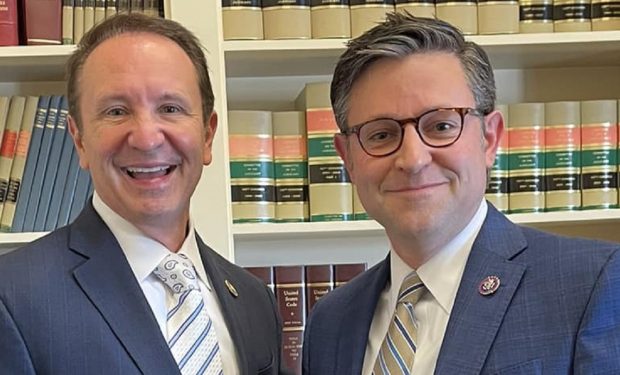Louisiana today became the first U.S. state to require that the Ten Commandments be posted in every public school classroom in every elementary, middle and high school, as well as public college classrooms.
The Ten Commandments must be printed “in a large, easily readable font” and on paper no smaller than 11 by 14 inches. According to The New York Times, the posters will also include three-paragraphs promoting the Ten Commandments as a “prominent part of American public education for almost three centuries.”
The American Civil Liberties Union and the Freedom From Religion Foundation have called the legislation “blatantly unconstitutional” and vowed a legal fight.
Louisiana has the worst crime rate in the nation — but this is their priority. https://t.co/7IDD3Djyvw
— Gavin Newsom (@GavinNewsom) June 19, 2024
Republican Governor Jeff Landry, who signed the legislation on Wednesday, said at a GOP fundraising event in Nashville, “I can’t wait to be sued.” He added, “If you want to respect the rule of law, you’ve got to start from the original law giver, which was Moses.”
Note: In 1980, the Supreme Court struck down a similar Kentucky law, Stone v. Graham, which the court found had violated the establishment clause of the First Amendment, which is intended to “prevent government from either advancing (that is, establishing) or hindering religion, preferring one religion over others, or favoring religion over nonreligion.”
Democratic California Governor Gavin Newsom responded to the Louisiana news by pointing out: “Louisiana has the worst crime rate in the nation — but this is their priority.”
Louisiana is ranked #2 on U.S. News and World Report‘s 10 Most Dangerous States List, which gives the state a Violent Crime Rate metric of 629 per 100,000. New Mexico is ranked #1, and California is ranked #9.)
Note: Before becoming Governor in January, as Louisiana Attorney General in 2018 Landry and now-House Speaker Mike Johnson (R-LA) pushed for student-led prayer and religious expression in public schools and published the document “Louisiana Student Rights Review,” which according to critics “oversimplifies complex issues that haven’t been ruled on by the U.S. Supreme Court.”
